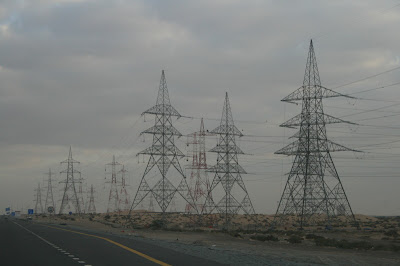 Death of UAE Ruler
Death of UAE Ruler
It was reported on Friday 2 January 2009 by
WAM, the state news agency, that the ruler of
Umm al-Quwain, one of the seven emirates comprising the United Arab Emirates, has died.
Sheikh Rashid bin Ahmed Al-Mualla, died on the morning of Friday 2 January 2009, in London.
Funeral Prayers
WAM further reported (2 January 2009) that special prayers for the dead would be offered for the late Sheikh Rashid bin Ahmed Al-Mualla on Saturday, January 3, after the "Asr" evening prayers at the Grand Mosque in Al-Ras, in Umm Al-Qaiwain.
H.H. Sheikh Saud bin Rashid Al-Mualla, Supreme Council Member and Ruler of Umm Al-Qaiwain, would receive at his palace condolences for three days, beginning from Saturday.
Week of Mourning
The UAE President, Sheikh Khalifah bin Zayed al-Nahayan, has ordered a week of national mourning and all government institutions to close for three days starting from Friday.
While not all emirates have issued statements pertaining to their state, several appear to be following the lead of Dubai where a week of mourning has been declared in the Emirate, during which flags shall fly at half mast, while all federal and local government departments and institutions shall remain closed for three days beginning from Friday.
All celebration activities, scheduled for Saturday, to mark the third anniversary of the accession of Sheikh Mohammed bin Rashid Al Maktoum, as Ruler of Dubai, have been cancelled.
The wedding party of Sheikh Saeed Bin Dalmouk Al Maktoum and the daughter of Vice President and Prime Minister of UAE and Ruler of Dubai His Highness Sheikh Mohammed bin Rashid Al Maktoum, scheduled for Sunday 4 January, has been postponed.
Life and Legacy
Much will be recalled in the next few days about the life and legacy of Sheikh Rashid bin Ahmed Al-Mualla.
Shaikh Rashid was born in 1932 of the Al Ali tribe and he received a religious education at the hands of his father.
In the late 1950s he gained experienced in state affairs and became the ruler of Umm Al Quwain in 1981, after the abdication of his father, Shaikh Ahmad.
Shaikh Rashid was a close friend of the first UAE President Shaikh Zayed.
A tribute in Friday’s
Gulf News lauded Shaikh Rashid's farsightedness, vision and wisdom.
Furthermore it stated that once when he was asked how he wanted to be remembered, Shaikh Rashid said: “I want to be mentioned in history as a fair ruler who tried his best to make his people enjoy the greatest deal of welfare, and that I had dedicated my life to preserve noble values that were followed by our ancestors.”
Dr Geoff Pound
Image: Sheikh Rashid bin Ahmed Al-Mualla.
 The rain fell steadily throughout last night.
The rain fell steadily throughout last night.




















